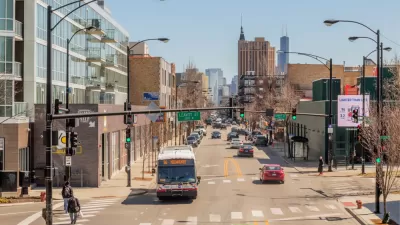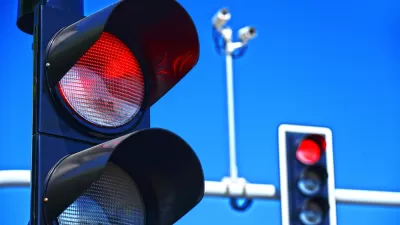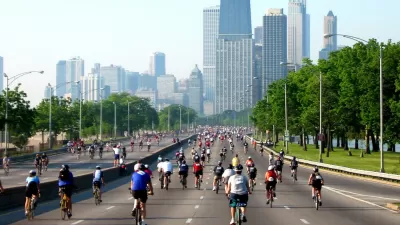A special investigation by the Chicago Tribune finds inconsistencies and errors with the city's "'Children's Safety Zone" initiative, which places speed camera near schools and parks.
David Kidwell and Abraham Epton report on the results of a Chicago Tribune investigation into the city of Chicago's speed camera program.
"Mayor Rahm Emanuel's speed camera program improperly issued more than $2.4 million in fines to Chicago drivers, ticketing them when cameras were supposed to be off and when the required warning signs were confusing, obscured or missing," according to the article's explanation of the findings of the investigation.
The premise of the investigation follows concern about the "complicated set of rules that govern when, where and how drivers can be tagged by the automated cameras now in place at 63 schools and parks throughout the city."
The article insists that the Emanuel Administration has been selling the cameras "as a way to protect youngsters walking near parks and schools," but "the most prolific cameras in the 2-year-old 'Children's Safety Zone' initiative can be found along major roadways, where crash data show child pedestrians are least likely to be struck by speeders."
The reporters note that city officials have acknowledged mistakes with the system. Specifically, "[a]fter Tribune inquiries, the Emanuel administration says it is moving to issue refunds for nearly 23,000 tickets City Hall now admits should never have been mailed in the first place."
The article includes a lot more detail about the program, including how it relates to the city's also-controversial red-light program.
FULL STORY: Emanuel's speed cameras issue $2.4 million in bad tickets

Maui's Vacation Rental Debate Turns Ugly
Verbal attacks, misinformation campaigns and fistfights plague a high-stakes debate to convert thousands of vacation rentals into long-term housing.

Planetizen Federal Action Tracker
A weekly monitor of how Trump’s orders and actions are impacting planners and planning in America.

Chicago’s Ghost Rails
Just beneath the surface of the modern city lie the remnants of its expansive early 20th-century streetcar system.

Bend, Oregon Zoning Reforms Prioritize Small-Scale Housing
The city altered its zoning code to allow multi-family housing and eliminated parking mandates citywide.

Amtrak Cutting Jobs, Funding to High-Speed Rail
The agency plans to cut 10 percent of its workforce and has confirmed it will not fund new high-speed rail projects.

LA Denies Basic Services to Unhoused Residents
The city has repeatedly failed to respond to requests for trash pickup at encampment sites, and eliminated a program that provided mobile showers and toilets.
Urban Design for Planners 1: Software Tools
This six-course series explores essential urban design concepts using open source software and equips planners with the tools they need to participate fully in the urban design process.
Planning for Universal Design
Learn the tools for implementing Universal Design in planning regulations.
planning NEXT
Appalachian Highlands Housing Partners
Mpact (founded as Rail~Volution)
City of Camden Redevelopment Agency
City of Astoria
City of Portland
City of Laramie





























